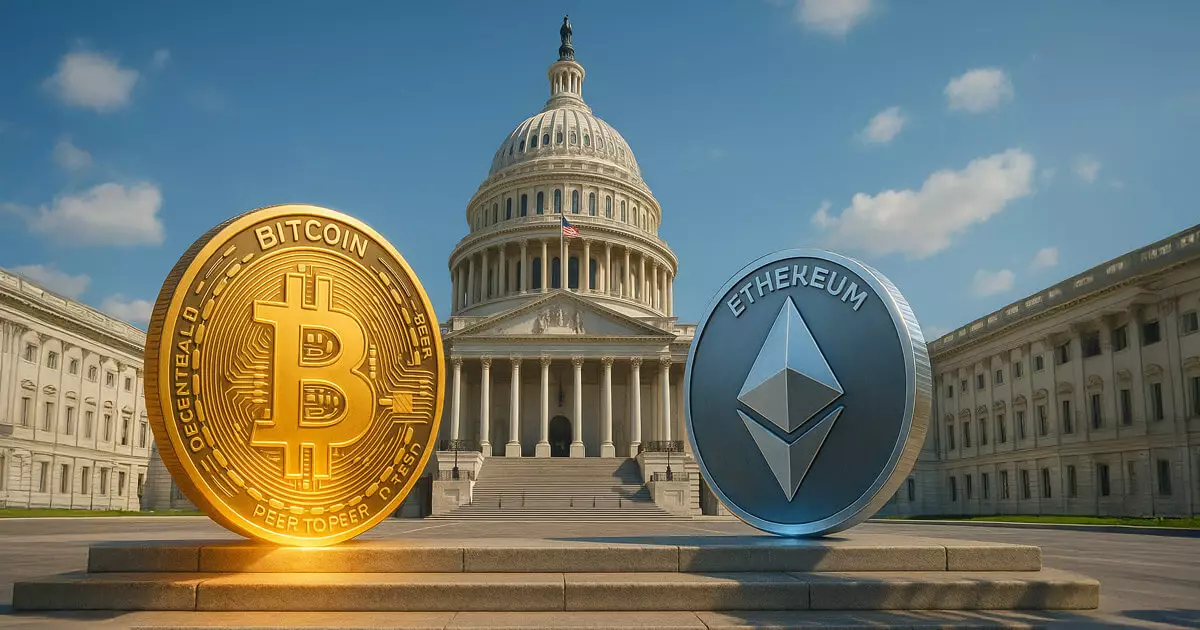Despite the lofty rhetoric about bipartisan cooperation, the recent appeal by twelve Democratic senators for Republican collaboration on crypto regulation reveals more about political posturing than genuine consensus. The push suggests a desire to appear pragmatic and constructive, yet it conveniently sidesteps the skepticism many center-right analysts harbor about increased government interference. The notion that a cooperative legislative process can be achieved in an arena fraught with conflicting interests and ideological disparities is naïve. Instead, it signifies a strategic maneuver to legitimize expanded governmental oversight, potentially encroaching too far into markets that thrive on innovation and limited regulation.
The framing of this initiative as a “collaborative effort” ignores fundamental questions about the appropriate role of government in crypto markets. Centralizing oversight in bodies like the CFTC and SEC, armed with broader enforcement powers, risks transforming a decentralized, technology-driven industry into a heavily regulated sector reminiscent of traditional finance. The government’s pursuit of “mutual understanding” seems less about fostering honest dialogue and more about consolidating control, marginalizing dissenting voices that warn against overreach. This attempt at bipartisanship ultimately underscores a broader trend: the desire of insiders to regulate away disruptive innovation under the guise of protecting consumers and maintaining order.
The Overreach of Regulatory Authority and Its Consequences
The legislation, as proposed, aims to extend government reach into every facet of digital assets, from spot markets to DeFi protocols. Granting the CFTC absolute jurisdiction over certain digital commodities and expanding SEC oversight over tokenized securities threatens to stifle innovation rather than foster it. This type of regulation, framed as necessary for investor protection, often results in the opposite effect—limiting access, increasing costs, and creating entry barriers that favor entrenched incumbents with the resources to comply.
Moreover, this approach presumes that regulators can craft rules that keep pace with constantly evolving blockchain technology. History shows that bureaucratic agencies tend to lag behind technological developments, leading to vague regulations filled with loopholes or outright bans. The proposed mandatory disclosure and registration requirements, while superficially protective, create an environment ripe for government overreach, surveillance, and the suppression of technological experimentation. It risks transforming an open, borderless ecosystem into a heavily policed sphere that favors power and control over innovation and free-market principles.
The Undermining of Financial Liberties through Politically Motivated Restrictions
One of the most troubling elements of this legislative push is its attempt to embed political motives into crypto regulation. The proposal’s emphasis on barring public officials and their families from profiting from tokens and requiring full disclosure of holdings aligns with a broader effort to politicize crypto assets. While transparency is vital, these measures could be weaponized to target political adversaries or limit the financial privacy of legitimate investors.
Furthermore, the legislation’s emphasis on controlling stablecoins and decentralized finance protocols reflects an underlying paranoia—fear of losing control over an industry that, by design, thrives on decentralization and censorship resistance. Imposing centralization mandates and compliance requirements on DeFi protocols, many of which are built to bypass traditional gatekeepers, is an attempt to artificially force an open, permissionless sector into a regulatory mold that is ill-suited for its nature.
This approach not only risks hampering innovation but also invites regulatory capture, where government agencies and established financial institutions co-opt emerging technologies for their own benefit. It effectively turns a disruptive innovation into a regulated commodity, diminishing its capacity to democratize finance and empower individual investors. As a center-right observer, I see this as a misguided overreach—one that stifles entrepreneurial spirit and feeds into a broader trend of government over-regulation driven by vested interests rather than genuinely safeguarding the public.
The Broader Implications for America’s Competitive Edge
The concerted effort to impose strict regulatory frameworks on digital assets is driven by the fear of losing economic dominance in a rapidly digitizing world. While safeguarding markets from illicit activities is important, the proposed measures risk sacrificing America’s leadership in blockchain innovation and financial technology. The rest of the world is swiftly adapting to crypto and DeFi markets, often with lighter-touch regulation that fosters growth and experimentation.
By centralizing control and emphasizing compliance over innovation, the U.S. risks accelerating its decline as a global tech hub. This regulatory environment could drive entrepreneurs and capital abroad, where more permissive jurisdictions foster innovation. Instead of a balanced approach that protects consumers without hamstringing technological development, the current trajectory looks like a bureaucratic siege—one rooted more in maintaining traditional power structures than in creating a free and dynamic financial ecosystem.
This undue focus on regulatory dominance threatens to turn America’s leadership in financial innovation into a cautionary tale. We should emphasize clear, fair, and flexibility-oriented policies that encourage responsible innovation rather than attempt to micromanage every nuance of a rapidly evolving ecosystem. Otherwise, the price paid will be America’s diminished influence and lost economic opportunities in the digital age.

